Politics
Bangladesh verdict due in ex-PM Sheikh Hasina’s crimes against humanity trial
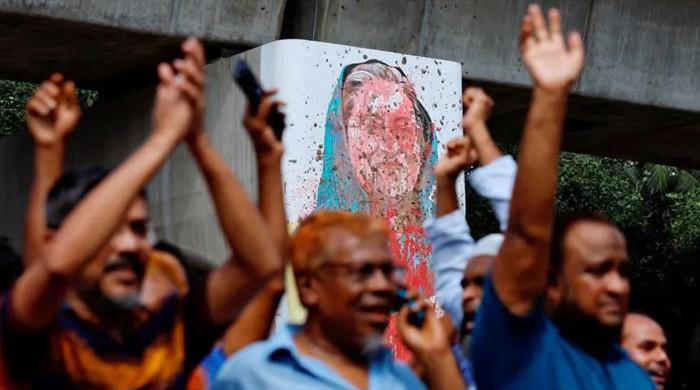
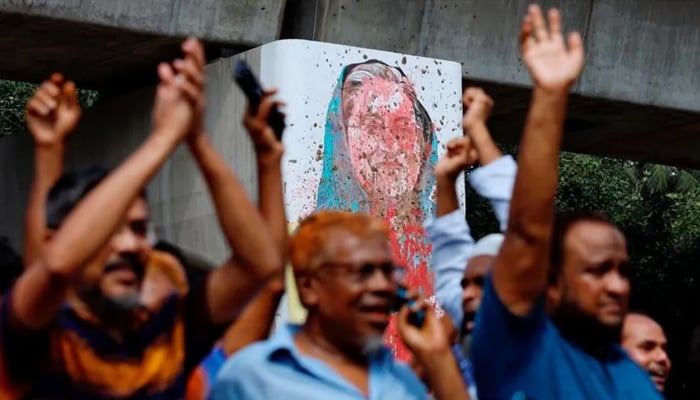
- Hasina defies court orders that she return from India to attend trial.
- Bangladesh remains in political turmoil since end of Hasina’s rule.
- Chief prosecutor says “justice will be served according to the law”.
Bangladeshi judges will deliver their verdict on Monday in the crimes against humanity trial of fugitive former prime minister Sheikh Hasina, a highly anticipated ruling before the first polls since her overthrow.
Hasina, 78, defied court orders that she return from India to attend her trial about whether she ordered a deadly crackdown against a student-led uprising that ousted her in August 2024.
She faces a possible death penalty if convicted.
Bangladesh has been in political turmoil since the end of Hasina’s autocratic rule, and violence has marred campaigning for elections expected in February 2026.
The United Nations says up to 1,400 people were killed in crackdowns as Hasina tried to cling to power, deaths that were central to her trial.
“Justice will be served according to the law,” chief prosecutor Tajul Islam told reporters when the verdict date was set last week.
“We hope the court will exercise its prudence and wisdom, that the thirst for justice will be fulfilled, and that this verdict will mark an end to crimes against humanity,” he said.
Prosecutors have filed five charges, including failure to prevent murder, amounting to crimes against humanity under Bangladeshi law.
The trial has heard months of testimony in absentia alleging she ordered mass killings. She has called the trial a “jurisprudential joke”.
Her co-accused include former interior minister Asaduzzaman Khan Kamal — also a fugitive — and former police chief Chowdhury Abdullah Al-Mamun, who is in custody and has pleaded guilty.
Hasina was assigned a state-appointed lawyer for the trial but she refused to recognise the court’s authority and said she rejected all charges.
Hasina said in a written interview with AFP in October that a guilty verdict was “preordained”, and that she would “not be surprised when it comes”.
Deepening crisis
Security forces surrounded the court when the verdict date was set on Thursday, with armoured vehicles manning checkpoints.
Dhaka Municipal Police spokesman Talebur Rahman said the force would be on high alert for Monday’s verdict, with checkpoints at key intersections across the capital.
Almost half the city’s 34,000 police would be on duty, he said.
Interim interior ministry chief Jahangir Alam Chowdhury told reporters the government was prepared and there was no cause for concern.
Crude bombs have been set off across Dhaka this month, mainly petrol bombs hurled at everything from buildings linked to interim leader Muhammad Yunus’s government to buses and Christian sites.
Bangladesh’s foreign ministry summoned India’s envoy to Dhaka this month, demanding that New Delhi block the “notorious fugitive” Hasina from talking to journalists and “granting her a platform to spew hatred”.
Hasina remains defiant.
She said in October she “mourned all the lives lost during the terrible days” when students were gunned down in the streets. Her comments enraged many who said she had made a ruthless bid to maintain power at all costs.
Hasina also warned that the ban on her former ruling party the Awami League by the interim government was deepening the political crisis in the country of 170 million people before the elections.
Politics
India strikes US gas deal under Trump pressure
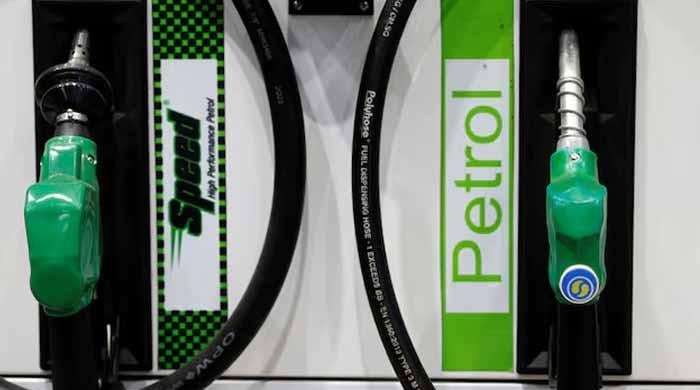
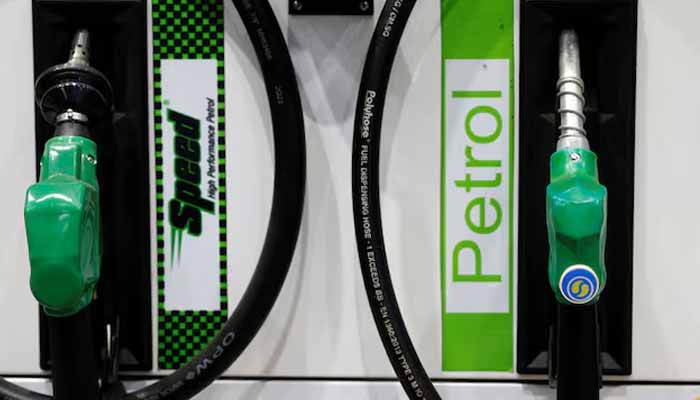
- India diversifies LPG sources with new US supply deal.
- India-US talks continue despite tariff, oil import disputes.
- US tariffs seen denting India’s GDP by up to 80 bps.
India said on Monday it had signed a “significant” deal that will see the United States supply nearly 10% of the Asian giant’s liquefied petroleum gas (LPG) imports, as it seeks to diversify its energy sources.
Relations between Washington and New Delhi plummeted in August after President Donald Trump raised tariffs on India to 50%, with US officials accusing the country of fuelling Russia´s war in Ukraine by buying its discounted oil.
Trump has claimed that Indian Prime Minister Narendra Modi has agreed to cut its Russian oil imports as part of a prospective trade deal — something New Delhi has not confirmed.
India and the United States remain in talks, despite disagreements over a range of issues, including agricultural trade and the Russian oil purchases.
Minister for Petroleum and Natural Gas Hardeep Singh Puri said India had signed the one-year deal for 2.2 million tonnes per annum of LPG, sourced from the US Gulf Coast, providing “close to 10%” of India´s annual imports of the fuel.
Puri said it was “the first structured contract of US LPG for the Indian market”.
“In our endeavour to provide secure, affordable supplies of LPG to the people of India, we have been diversifying our LPG sourcing,” Puri said in a statement, adding that “one of the largest and the world´s fastest growing LPG market opens up to the United States”.
In October, Indian state-backed refiner HPCL-Mittal Energy said it halted purchases of Russian crude after Washington imposed sanctions on Moscow’s two largest oil companies.
Reliance Industries, the privately owned main Indian buyer of Russian crude, has also said it is assessing the implications of the US restrictions, as well as those imposed by the European Union.
India’s economy, the fifth-largest in the world, grew at its fastest pace in five quarters in the three months ending June 30, helped by higher government spending and improved consumer sentiment.
But US tariffs continue to overshadow the economy, with experts projecting that they could shave anywhere between 60 to 80 basis points off GDP growth this fiscal year, if there is no relaxation soon.
Politics
Bangladesh’s former PM Hasina sentenced to death over student crackdown
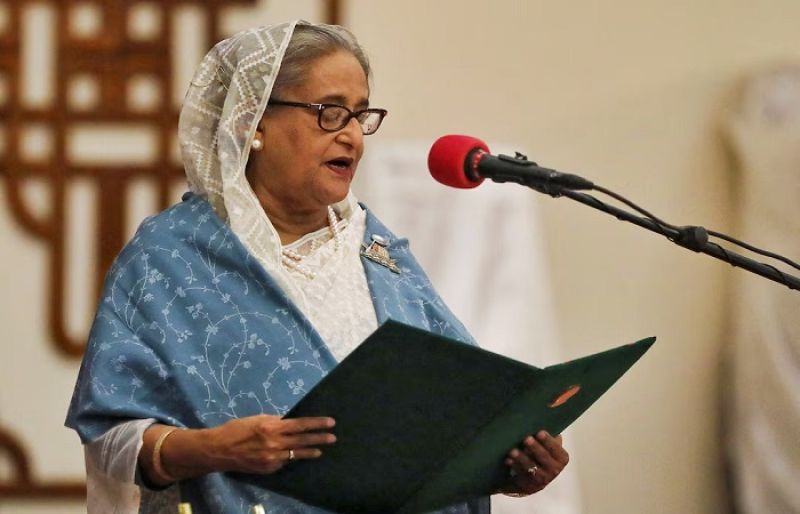
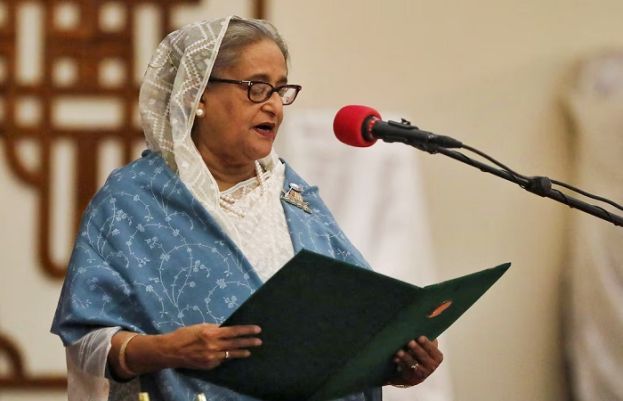
A Bangladesh war crimes tribunal on Monday handed down a death sentence to ousted Prime Minister Sheikh Hasina, wrapping up a months-long trial that held her responsible for ordering a lethal crackdown on a student-led uprising last year.
The verdict marks one of the most consequential legal actions against a former Bangladeshi premier in decades and comes just months before national elections expected in early February.
With Hasina’s Awami League already barred from contesting, fears are mounting that the ruling could ignite renewed unrest ahead of the polls.
The International Crimes Tribunal, Bangladesh’s domestic war crimes court based in Dhaka, announced the judgment under stringent security measures and in Hasina’s absence, as she fled to India in August 2024.
Hasina received a life sentence for crimes against humanity and the death penalty for the killings that occurred during the uprising. The courtroom erupted in cheers and applause as the death sentence was read out.
The former premier retains the right to challenge the decision before the Supreme Court. However, Hasina’s son and adviser, Sajeeb Wazed, told Reuters a day before the ruling that they would not pursue an appeal unless a democratically elected government—one including the Awami League—takes office.
During the trial, prosecutors claimed they had obtained evidence proving Hasina ordered security forces to use deadly force to crush the student movement that swept the country in July and August 2024.
A United Nations assessment estimated that as many as 1,400 people were killed between July 15 and August 5, 2024, with thousands more injured—many from gunfire by security forces.
Hasina was defended by a state-appointed lawyer, who insisted the charges were fabricated and urged the court to acquit her.
The former premier, however, had repeatedly dismissed the proceedings as politically motivated, calling the outcome “predetermined.”
Tension had been rising nationwide in the days leading up to the verdict, with at least 30 crude bomb blasts and 26 vehicles torched across different cities. No casualties were reported.
Hasina, 78, who has remained in India since she was overthrown in August 2024, challenged the legitimacy of the Tribunal in an email interview with Reuters last month.
“These proceedings are a politically motivated charade,” she said. “They have been brought by kangaroo courts, with guilty verdicts a foregone conclusion. They are presided over by an unelected government which consists of my political opponents.”
She also said she was denied adequate notice of the hearings and any meaningful opportunity to mount a defence, adding that she was not personally involved in the use of lethal force or other alleged crimes.
The Muslim-majority South Asian country of 170 million people has been governed by an interim administration headed by Nobel Peace laureate Muhammad Yunus since Hasina fled. Although the country has been largely peaceful since, political stability is yet to return.
In the Reuters interview, Hasina warned of growing anger among supporters of the Awami League and said that millions of party loyalists would boycott the parliamentary elections in February.
On Monday, security remained tight across Dhaka and other major cities, with paramilitary forces deployed around key government buildings and the tribunal complex.
Politics
Saudi Arabia restricts Hajj 2026 for seriously ill pilgrims

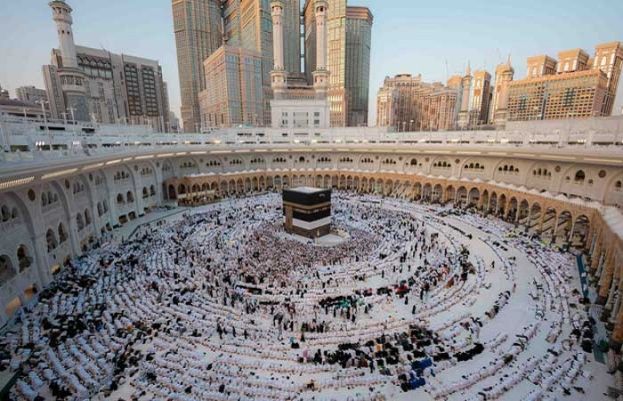
The Saudi government has announced strict restrictions for seriously ill individuals wishing to perform Hajj 2026. Under a new policy, seriously ill pilgrims may be deported back to their home countries, with the cost of travel to be borne by the pilgrims themselves.
Sources in the Ministry of Religious Affairs added that action will be taken against doctors who issue fitness certificates to individuals who do not meet the health requirements.
According to directives from the Saudi Ministry of Health regarding medical conditions for Hajj 2026, patients with kidney diseases or those undergoing dialysis will not be permitted to perform the pilgrimage.
Similarly, individuals with heart conditions that limit physical activity, advanced lung or liver diseases, and severe neurological or psychiatric illnesses—including memory impairment, dementia, or severe disabilities—will also be restricted.
Additionally, elderly individuals with serious age-related health conditions, such as Alzheimer’s disease or epilepsy, will be barred from performing Hajj.
Pregnant women, as well as patients suffering from contagious diseases such as whooping cough, tuberculosis, or viral hemorrhagic fevers, will likewise not be allowed to participate in Hajj 2026.
Cancer patients have also been declared ineligible for Hajj. Medical officers will be authorised to prevent such individuals from travelling before departure.
Monitoring teams deployed by Saudi authorities will assess and verify the authenticity of each pilgrim’s fitness certificate.
-

 Tech7 days ago
Tech7 days agoFrom waste to asset: Turning ethanol production CO₂ into jet fuel
-

 Tech2 days ago
Tech2 days agoNew carbon capture method uses water and pressure to remove CO₂ from emissions at half current costs
-

 Politics3 days ago
Politics3 days agoBritish-Pakistani honoured for transforming UK halal meat industry
-

 Sports2 days ago
Sports2 days agoTexas A&M officer scolds South Carolina wide receiver after touchdown; department speaks out
-
Sports1 week ago
College football winners and losers: The catch of the year saves Indiana
-
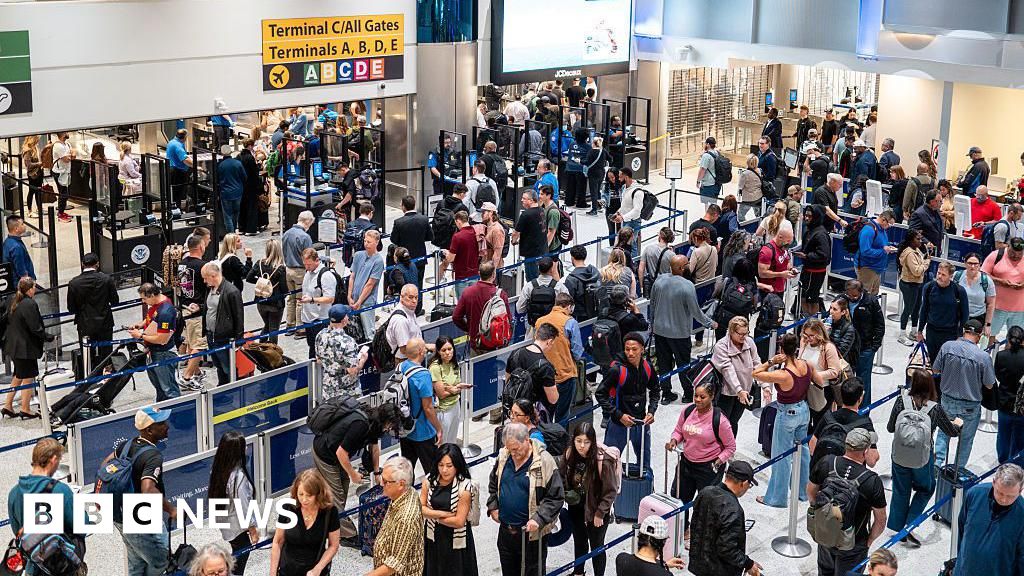
 Business1 week ago
Business1 week agoMore than 1,000 flights cancelled as US air traffic cuts enter second day
-
Sports1 week ago
The next Tom Brady? No, Drake Maye is a different breed.
-

 Entertainment1 week ago
Entertainment1 week agoTom Hiddleston returns in 'The Night Manager' season 2 trailer






